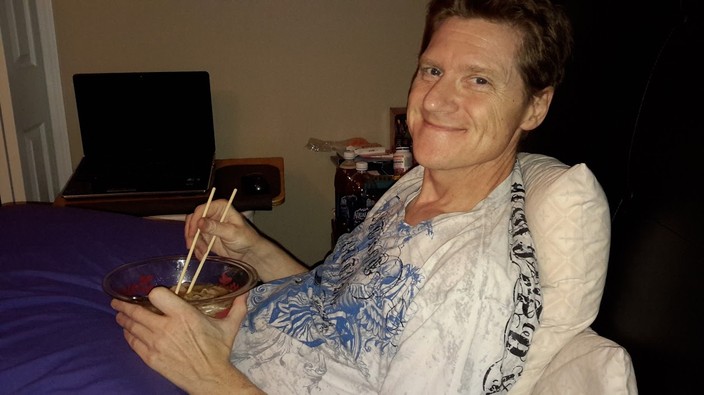a saskatoon dad in palliative care is still waiting to find out if he can legally use psilocybin for mental health
"cannabis, i felt, was a very effective tool," says thomas hartle. "i believe that psilocybin will also be an effective tool.”

thomas hartle is one of four canadians to be granted a medical exemption to pursue psychedelic therapy.
thomas hartle
in a video posted to her facebook page on world mental health day, minister of health patty hajdu says, “no matter where i go, i hear from people who are having a hard time getting the services they need. no matter where you live in canada, you should have access to mental health services when you need them.”for thomas hartle, a 52-year-old husband and father of two from saskatoon who has been living with terminal cancer since 2016, this message feels especially pertinent. hartle is one of at least four palliative canadians who have applied directly to the minister for an exemption to section 56(1) of the canadian drugs and substances act. he has requested the minister respond by the end of the month.if granted, the exemption would allow hartle to pursue psilocybin-assisted psychotherapy on compassionate grounds. hartle, who has worked as an it professional for the last 25 years, became a medical cannabis consumer shortly after his cancer diagnosis, trying the plant for the first time at the age of 48. “if it works, i use it,” he says. “that’s my whole litmus test. cannabis, i felt, was a very effective tool. i believe that psilocybin will also be an effective tool.”
 4 minute read
4 minute read
